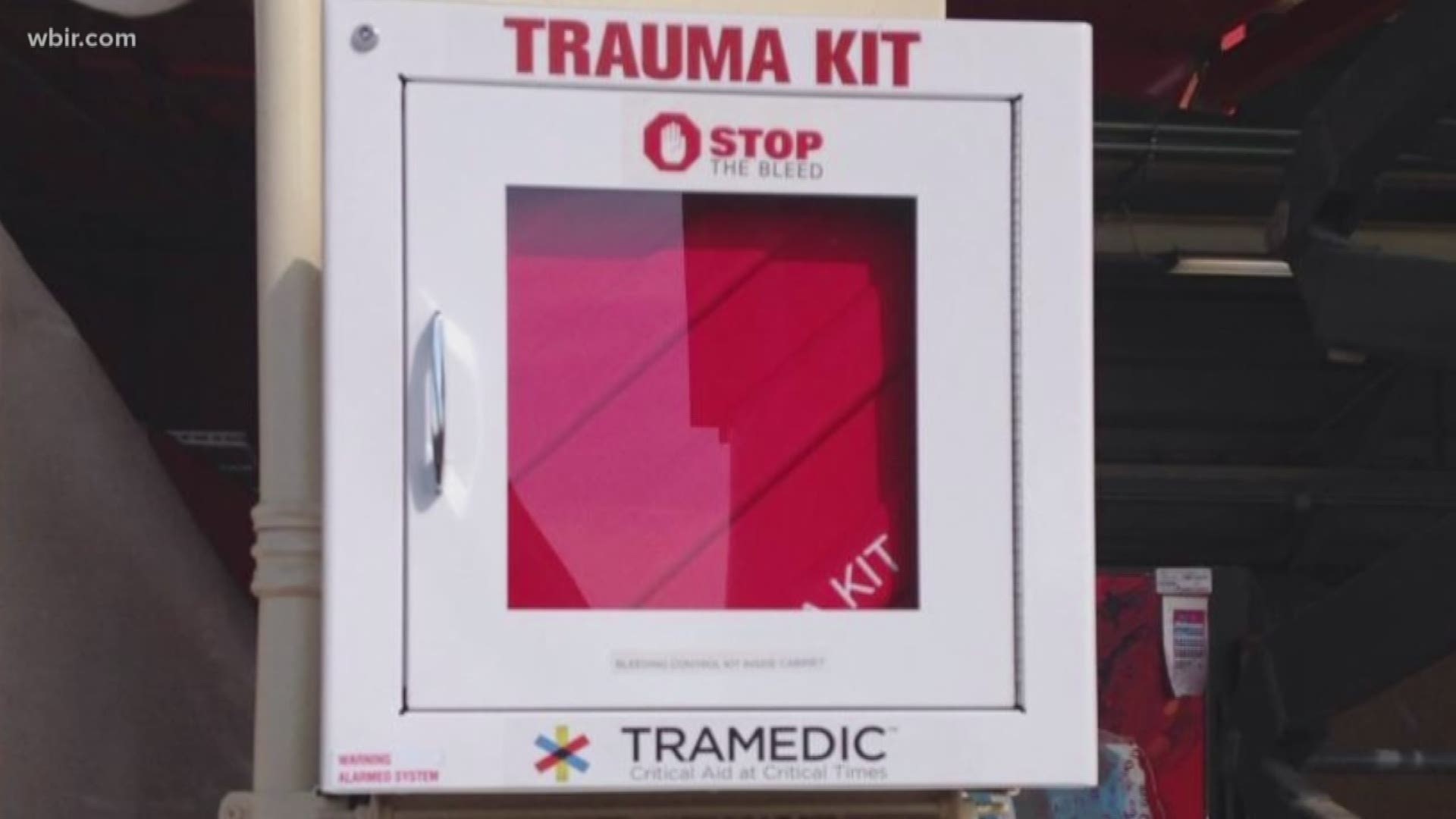National reports indicate that 2017 was the deadliest year for mass killings in the U.S. in more than a decade. A sobering fact that has played a role in national push for emergency preparedness
"It is a terrible thing that you have to think along those lines as if you were in combat, but in some cases that's exactly what you're doing," Knoxville Fire Captain, D.J. Corcoran, said.
The push to be prepared for anything has made its way to the University of Tennessee with 'Stop the Bleed' kits dispersed around campus.
"We needed something to get out to people immediately. It's a first line response," Brad Walker, the Emergency Management Planning Specialist at UT, said.
The kits contain bandages and a tourniquets to avoid bleeding out if you're shot or stabbed.
"Many times in a shooting we don't have time for emergency responders. This is a way to put some sort of first aid in peoples hands," Walker said.
"When your heart pumps, it's shooting blood out. That's how you know an artery was hit .You can bleed out within five minutes," Corcoran said.
Corcoran said although it's sad to admit, these kits are necessary.
"It's designed ot put pressure between the injury and the heart to control that bleeding," Corcoran, said.
Corcoran said a lot of deaths from mass shootings aren't from the shot itself, but from bleeding out.
That's just one more reason he believes these kits are crucial these days and becoming more popular.
"You're going to start seeing those more and more in workplaces, college campuses and high schools," Corcoran, said.
Right now, most of these kits can be found in external defibrillator kits in most buildings on campus.
In other, larger rooms on campus, you'll find bigger, trauma kits with easy to use instructions inside for 3 different situations: massive bleeding, wound care, or a chest or a torso injury.
UT is providing classes this month on how to use these kits. The first class is Wednesday. Details here.

